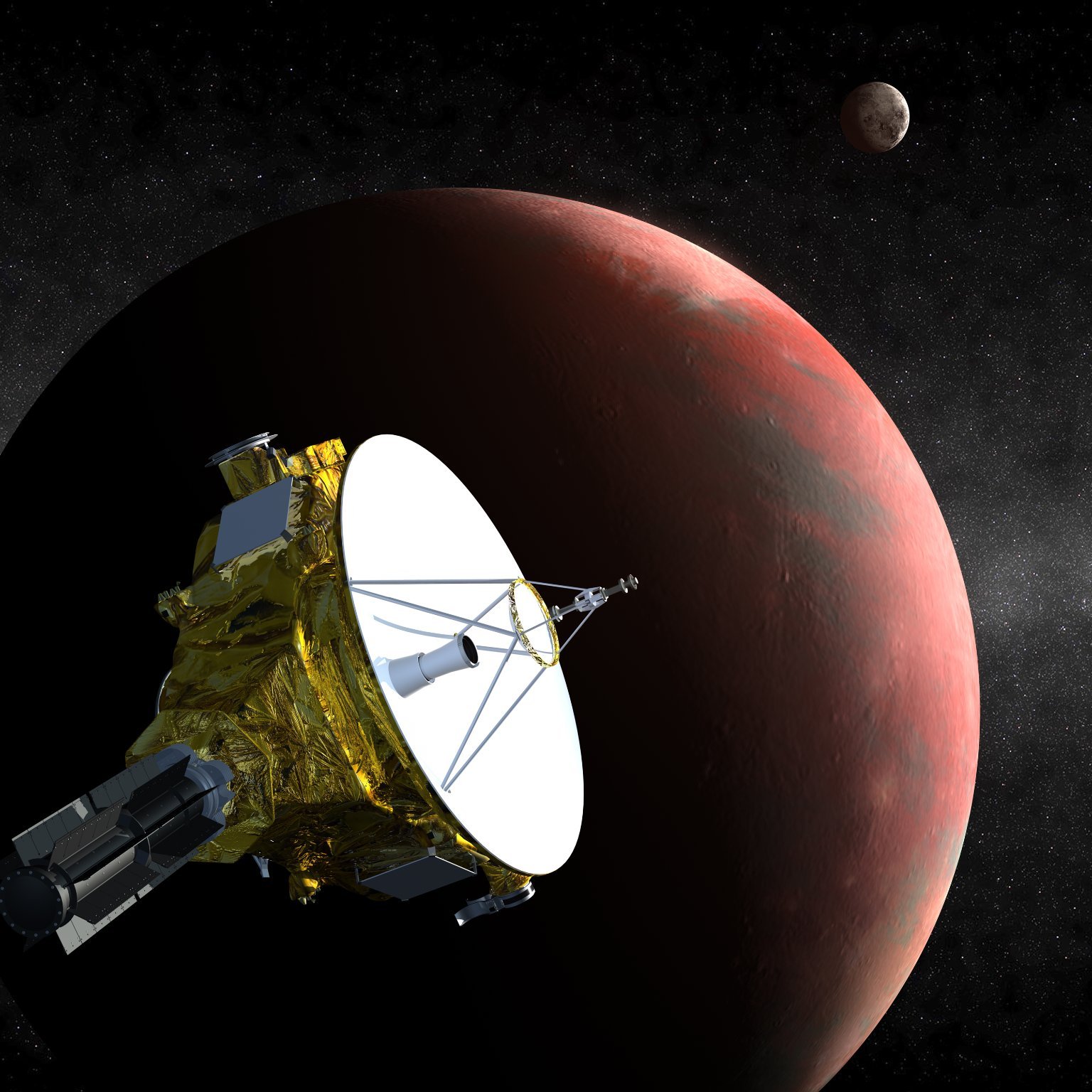Vote on Names for Pluto’s Moons

Pluto may no longer be a planet, but it’s still great at engendering public interest in astronomy. On February 11, the SETI (Search for Extraterrestrial Intelligence) Institute called on the Internet to vote on the official names of Pluto’s two smallest moons at plutorocks.seti.org. Astronomers at SETI discovered the two moons, currently referred to as “P4” and “P5”, in 2011 and 2012; each moon has an estimated diameter of less than 15-20 miles.
Voters can choose from a list of twelve names for the moons: Acheron, Alecto, Cerberus, Erebus, Eurydice, Hercules, Hypnos, Lethe, Obol, Orpheus, Persephone, and Styx. All potential names were chosen from Greek and Roman mythology for their connection to Pluto, Roman god of the Underworld; they will match the names of Pluto’s other three moons, Charon, Nix, and Hydra. (The names Nix and Hydra were also chosen for their initials, NH. These initials are shared with the NASA spacecraft New Horizons, which will reach Pluto by July 2015.)
To vote and learn more about SETI’s initiative, visit these links:
Pluto Rocks: Vote once a day until February 25th.
Dramatis Personae: Read about SETI’s rationale for each potential name.
Astronomers Ask Public to Help Name Pluto’s New Moons: Read SETI’s press announcement.
For more on Pluto and its moons, check out these library resources:
BBC Worldwide Ltd. Bye-bye, planet Pluto. New York, N.Y.: Films Media Group. [online video]
Or stop by our reference collection to learn more about the twelve candidates:
Dixon-Kennedy, M. (1998). Encyclopedia of Greco-Roman mythology. Santa Barbara, Calif.: ABC-CLIO.